Pushing the boundaries of data to ensure gender equality across the life span
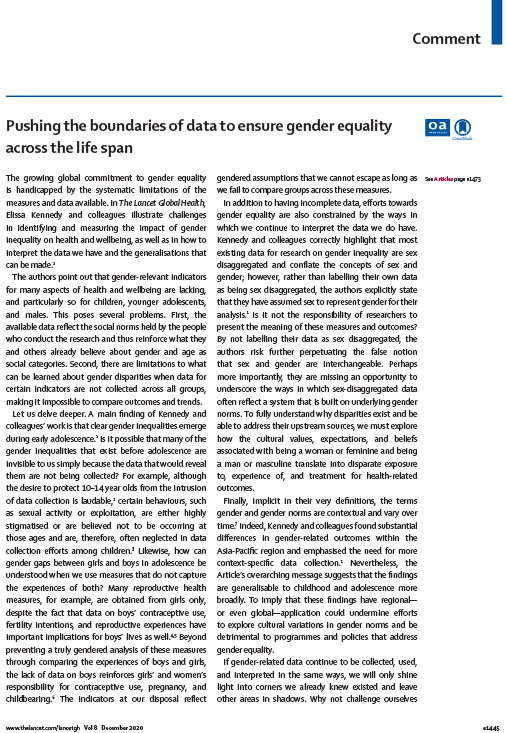
The growing global commitment to gender equality is handicapped by the systematic limitations of the measures and data available. In The Lancet Global Health, Elissa Kennedy and colleagues illustrate challenges in identifying and measuring the impact of gender inequality on health and wellbeing, as well as in how to interpret the data we have and the generalisations […]
Gender and sexuality: emerging perspectives from the heterosexual epidemic in South Africa and implications for HIV risk and prevention
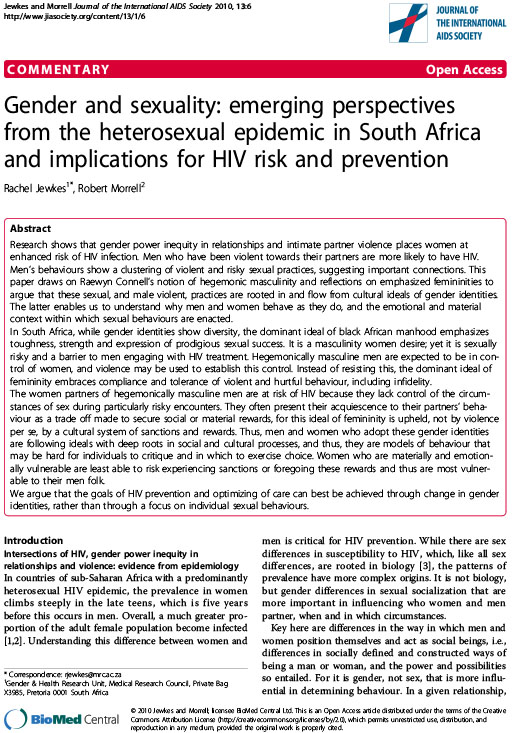
Research shows that gender power inequity in relationships and intimate partner violence places women at enhanced risk of HIV infection. Men who have been violent towards their partners are more likely to have HIV. Men’s behaviours show a clustering of violent and risky sexual practices, suggesting important connections. This paper draws on Raewyn Connell’s notion […]
Ten-year survival with analysis of gender difference, risk factors, and causes of death during 13 years of public antiretroviral therapy in rural Kenya
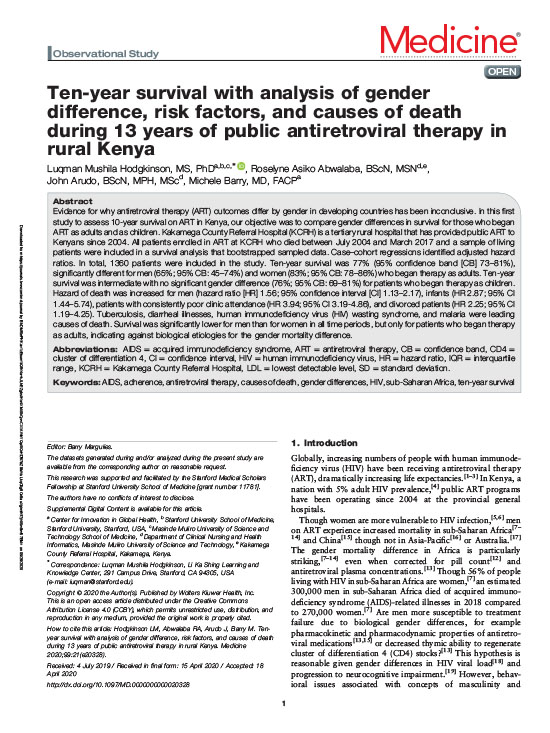
Evidence for why antiretroviral therapy (ART) outcomes differ by gender in developing countries has been inconclusive. In this first study to assess 10-year survival on ART in Kenya, our objective was to compare gender differences in survival for those who began ART as adults and as children. Kakamega County Referral Hospital (KCRH) is a tertiary […]
Rethinking Gender, Heterosexual Men, and Women’s Vulnerability to HIV/AIDS
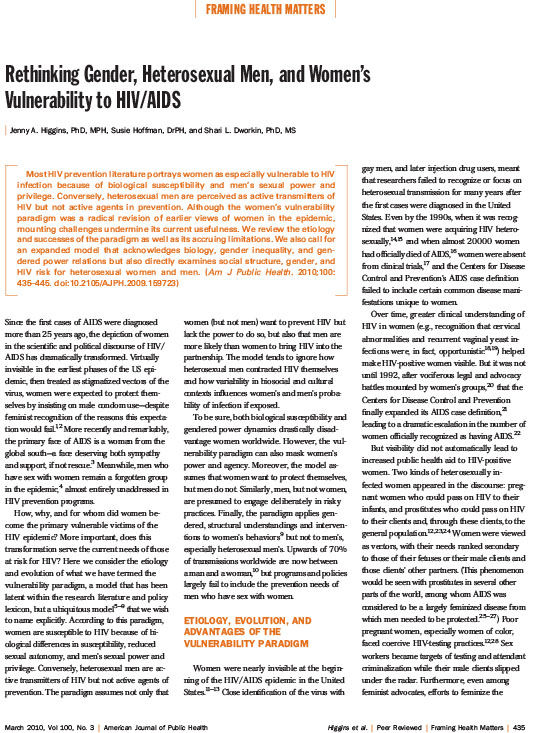
Most HIV prevention literature portrays women as especially vulnerable to HIV infection because of biological susceptibility and men’s sexual power and privilege. Conversely, heterosexual men are perceived as active transmitters of HIV but not active agents in prevention. Although the women’s vulnerability paradigm was a radical revision of earlier views of women in the epidemic, […]
‘He can’t say a man’s stuff to a woman…’: perspectives on the preferences of men living with HIV for gender concordant care workers in Cape Town, South Africa
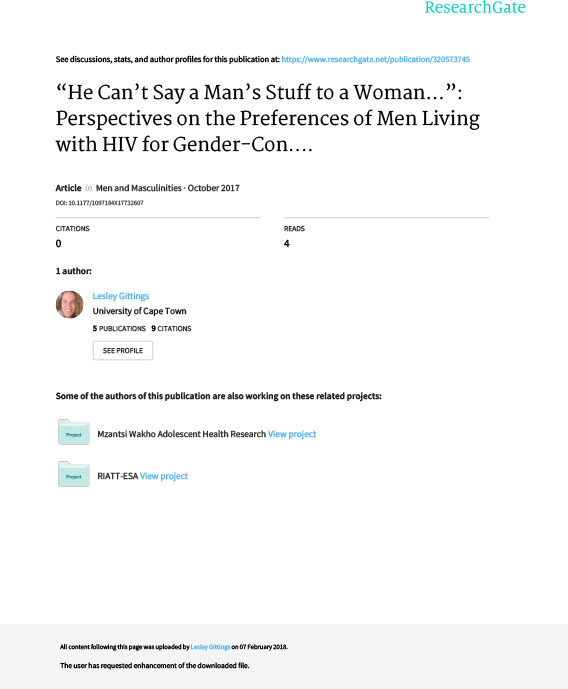
Community health workers (CHWs) play a central role in the provision of HIV care in South Africa, and people receiving such community-based adherence support have considerably better health outcomes. As with other forms of care work, the majority of CHWs are women. HIV vulnerability is also gendered, with women being more likely to contract HIV, […]
The power and process of shifting gender norms: Insights from a randomized controlled trial in South Africa
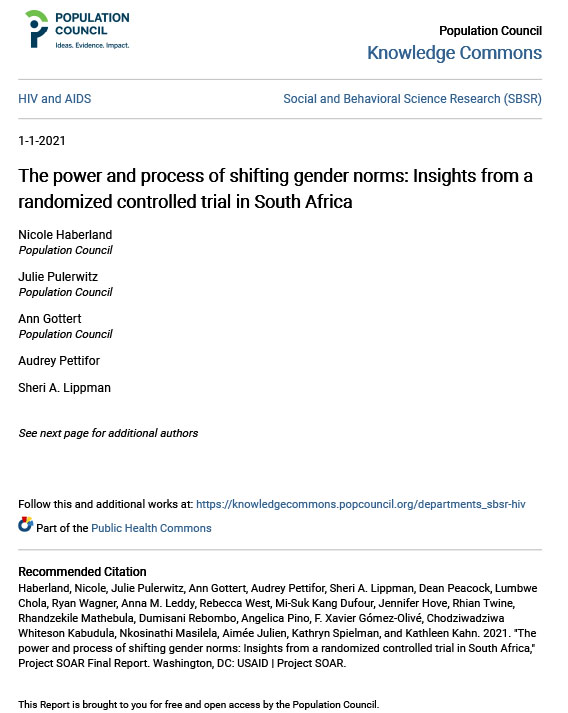
This Project SOAR report summarizes findings from a randomized controlled trial of Tsima ra rihanyu (“working together for health”), a three-year community mobilization program for treatment as prevention that aimed to address the social barriers to HIV testing and treatment in Mpumalanga Province, South Africa. In this report, the authors explore the types of gender […]


